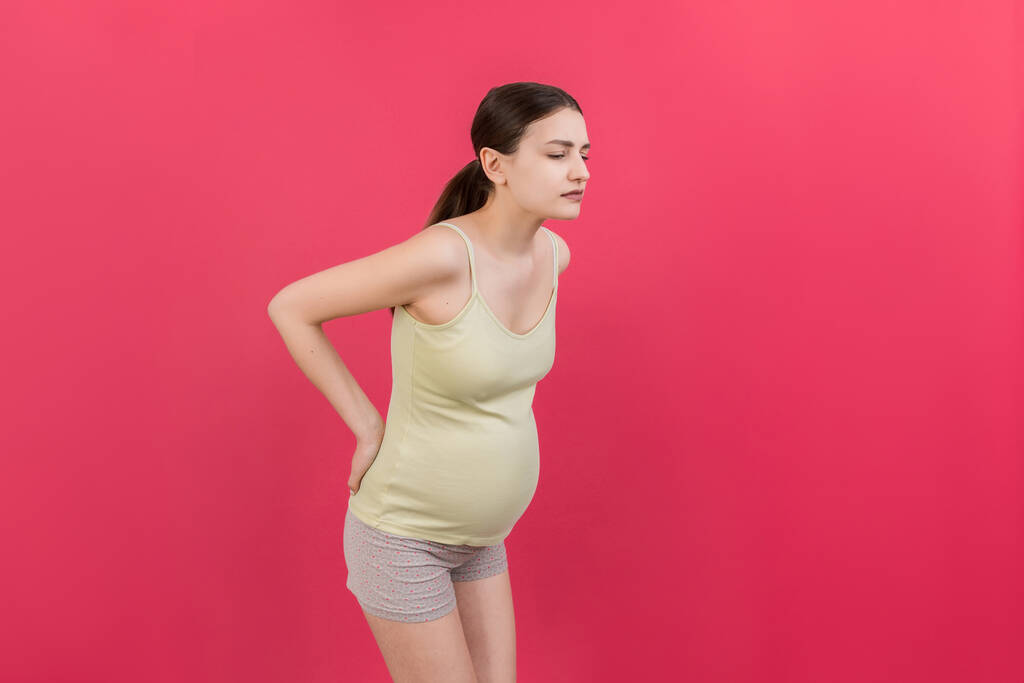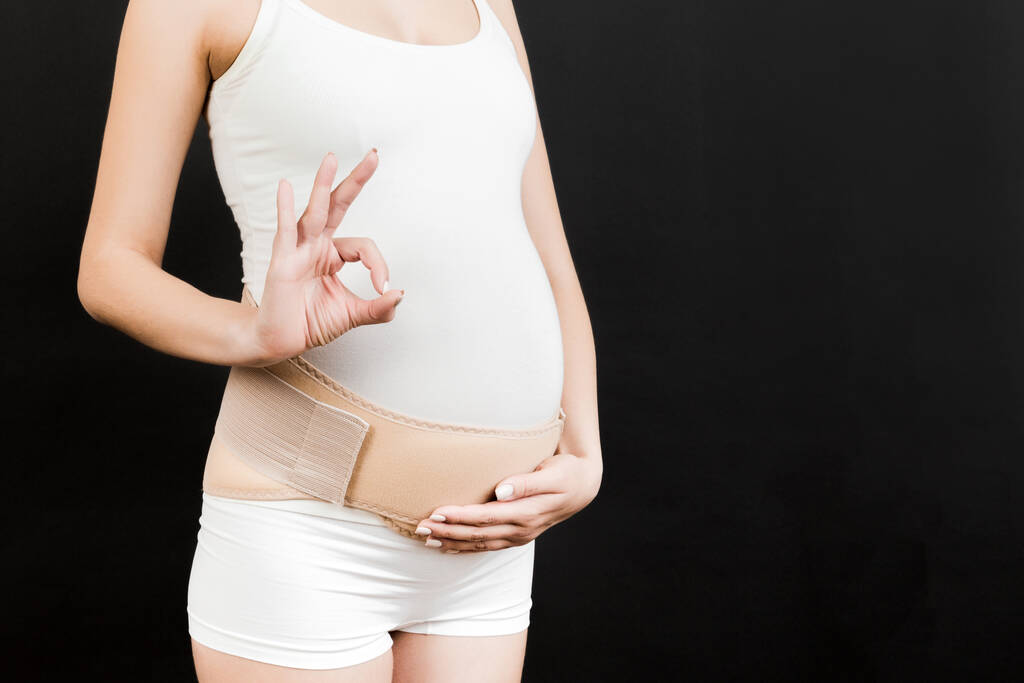Discover effective strategies for managing chronic back pain during pregnancy without relying on medication.
Managing Chronic Back Pain During Pregnancy Without Medication
Being pregnant is a joyful and exciting time, but it can also come with some discomforts, such as chronic back pain. The good news is that there are ways to manage and alleviate this pain without relying on medication. In this article, we will explore the causes of chronic back pain during pregnancy and discuss various lifestyle modifications and alternative therapies that can provide relief. Additionally, we will look at pain management techniques that pregnant women can utilize to ease their discomfort.

Understanding the Causes of Chronic Back Pain During Pregnancy
Pregnancy is a beautiful and transformative experience, but it can also bring about various physical changes in a woman’s body that can contribute to chronic back pain. It’s important to understand these causes to better manage the pain and find effective remedies that will allow expecting mothers to fully enjoy this special time.
One of the primary causes of chronic back pain during pregnancy is the changes in posture and weight distribution. As your baby bump grows, your center of gravity shifts, causing changes in posture and putting additional stress on your back. The body’s natural response to this shift is to compensate by adjusting the alignment of the spine. However, this adjustment can lead to discomfort and pain, especially in the lower back region.
Another factor that contributes to chronic back pain during pregnancy is the hormonal changes that occur in the body. During pregnancy, your body produces a hormone called relaxin, which loosens the ligaments in your pelvic area to prepare for childbirth. While this hormone is essential for the birthing process, it also affects other joints in your body, including those in your back. The loosening of these ligaments can potentially lead to increased pain and instability in the back.
In addition to changes in posture and hormonal fluctuations, increased pressure on the spine and pelvis is another common cause of chronic back pain during pregnancy. As your baby grows, the weight and pressure on your spine and pelvis increase. This added pressure can strain the muscles and cause back pain. The body’s natural response to this increased pressure is to adapt and redistribute the load, but sometimes this process can lead to discomfort and pain.
It is important to note that every woman’s experience with chronic back pain during pregnancy is unique. Some may experience mild discomfort, while others may have more severe pain. It is always recommended to consult with a healthcare professional to determine the best course of action for managing and alleviating the pain.
Fortunately, there are various remedies and strategies that can help relieve chronic back pain during pregnancy. These may include gentle exercises and stretches specifically designed for pregnant women, prenatal yoga, physical therapy, and the use of supportive devices such as maternity belts or pillows. Additionally, maintaining good posture, practicing proper body mechanics, and avoiding activities that exacerbate the pain can also make a significant difference.
Remember, chronic back pain during pregnancy is a common occurrence, but it doesn’t have to overshadow the joy and excitement of this special time. By understanding the causes and implementing effective management strategies, expecting mothers can find relief and fully embrace the journey of pregnancy.
Lifestyle Modifications to Alleviate Back Pain
Luckily, there are practical steps you can take to alleviate chronic back pain during pregnancy. These lifestyle modifications can make a significant difference in managing your discomfort and improving your overall well-being.
During pregnancy, your body undergoes numerous changes, including shifts in your center of gravity and the release of hormones that loosen ligaments and joints. These changes can put strain on your back and lead to discomfort. However, with the right lifestyle modifications, you can find relief and enjoy this special time in your life.
Exercise and Stretching Techniques
Engaging in safe and appropriate exercises can help strengthen your back muscles and improve flexibility. Low-impact activities such as walking, swimming, and prenatal yoga can provide relief and promote better posture.
Walking is a simple yet effective exercise that can be easily incorporated into your daily routine. It helps improve circulation, strengthens your core muscles, and promotes a healthy weight gain during pregnancy. Swimming, on the other hand, is a low-impact exercise that allows you to move freely without putting excessive strain on your joints. It provides a gentle resistance that can help strengthen your back muscles without causing discomfort.
Prenatal yoga is another excellent option for alleviating back pain. It focuses on gentle stretching, deep breathing, and relaxation techniques that can help relieve tension in your back and promote better posture. Additionally, prenatal yoga classes often provide modifications and props specifically designed for pregnant women, ensuring a safe and comfortable practice.
Proper Body Mechanics and Posture
Being mindful of your body mechanics and maintaining good posture throughout the day can go a long way in reducing back pain. Avoid standing or sitting for prolonged periods, and use supportive cushions or pillows to help you maintain proper alignment.
When lifting objects, it’s important to use your legs instead of your back. Bend your knees, keep your back straight, and lift with your leg muscles. This technique helps distribute the weight evenly and prevents excessive strain on your back.
Proper posture is crucial for relieving back pain. When sitting, make sure to sit up straight, with your shoulders relaxed and your feet flat on the floor. Avoid crossing your legs, as it can disrupt your body’s alignment and put additional strain on your back. If you spend long hours sitting at a desk, consider using an ergonomic chair that provides proper lumbar support and promotes good posture.
Using Supportive Devices and Equipment
Supportive devices, such as maternity belts or braces, can provide added support to your lower back and abdomen, reducing strain and discomfort. Additionally, using ergonomic chairs or pillows can help relieve pressure on your spine.
Maternity belts or braces are specifically designed to support your growing belly and relieve pressure on your back. They help distribute the weight more evenly and provide stability to your lower back, reducing the risk of pain and discomfort.
Ergonomic chairs and pillows are designed to promote proper posture and provide support to your back. They are often adjustable, allowing you to customize the position and angle to suit your needs. These supportive devices can make a significant difference in reducing back pain, especially if you spend long hours sitting or have a desk job.
In conclusion, making lifestyle modifications can effectively alleviate back pain during pregnancy. By incorporating safe exercises, maintaining proper body mechanics and posture, and using supportive devices, you can find relief and enjoy this special time in your life without the burden of chronic back pain.
Alternative Therapies for Back Pain Relief
In addition to lifestyle modifications, alternative therapies can offer relief from chronic back pain during pregnancy. These holistic approaches can complement conventional treatments and help alleviate discomfort.
When it comes to finding relief from back pain during pregnancy, there are several alternative therapies that can be beneficial. These therapies focus on addressing the root causes of the pain and promoting overall well-being. Let’s explore some of these alternative therapies in more detail:
Chiropractic Care and Spinal Manipulation
Seeking chiropractic care from a professional trained in prenatal techniques can help alleviate back pain and discomfort. Gentle spinal adjustments and manipulations can provide relief by improving spinal alignment and reducing muscle tension. Chiropractors who specialize in prenatal care understand the unique needs of pregnant women and can tailor their treatments accordingly.
During a chiropractic session, the chiropractor will use their hands or specialized tools to apply controlled pressure to specific areas of the spine. This helps to realign the vertebrae and relieve pressure on the nerves, resulting in reduced pain and improved mobility. Additionally, chiropractic care can help improve overall posture, which is crucial during pregnancy when the body is constantly changing and adapting to accommodate the growing baby.
Acupuncture and Acupressure
The ancient practices of acupuncture and acupressure can help stimulate specific points in the body associated with pain relief. By targeting these points, these therapies can aid in reducing back pain and promoting relaxation. Acupuncture involves the insertion of thin needles into specific points along the body’s meridian lines, while acupressure applies pressure to these points using fingers, hands, or specialized tools.
Both acupuncture and acupressure are believed to stimulate the release of endorphins, which are the body’s natural painkillers. These therapies also help improve blood circulation and energy flow throughout the body, promoting a sense of balance and well-being. Many pregnant women find acupuncture and acupressure to be effective in reducing back pain and promoting overall relaxation.
Massage Therapy and Prenatal Massage
Regular massage therapy, specifically tailored for pregnant women, can provide great relief from back pain. A skilled therapist can target tense muscles, improve blood circulation, and promote overall well-being. Prenatal massage is designed to accommodate the unique needs and changes that occur in a pregnant woman’s body.
During a prenatal massage, the therapist will use gentle techniques to alleviate muscle tension and promote relaxation. They will focus on areas prone to tension, such as the lower back, hips, and shoulders. The therapist may also incorporate techniques like Swedish massage, deep tissue massage, or myofascial release to address specific areas of discomfort.
In addition to relieving back pain, prenatal massage can also help reduce swelling, improve sleep quality, and alleviate stress and anxiety. It provides a nurturing and soothing experience for both the body and mind, allowing pregnant women to find relief and relaxation.
When considering alternative therapies for back pain relief during pregnancy, it’s important to consult with your healthcare provider and seek the services of qualified professionals. They can guide you in choosing the most appropriate therapies for your specific needs and ensure your safety and well-being throughout the process.
Pain Management Techniques for Pregnant Women
If you’re looking for immediate relief from chronic back pain during pregnancy, several pain management techniques can help reduce discomfort and make your day-to-day activities more bearable.

Heat and Cold Therapy
Applying a warm compress or taking a warm bath can help soothe sore muscles and reduce pain. Conversely, cold packs or ice wrapped in a cloth can help numb the area and reduce inflammation.
Transcutaneous Electrical Nerve Stimulation (TENS)
TENS is a technique that involves using a small device to deliver gentle electrical pulses to the affected area. This stimulation can help block pain signals and provide temporary relief.
Relaxation Techniques and Mind-Body Practices
Practicing relaxation techniques, such as deep breathing exercises, meditation, or prenatal yoga, can help you relax both mentally and physically. These techniques promote a sense of calmness and can reduce muscle tension.
Managing chronic back pain during pregnancy without medication is possible. By understanding the causes of the pain, implementing lifestyle modifications, exploring alternative therapies, and utilizing pain management techniques, you can find relief and enjoy this special time in your life. Remember, every pregnancy is unique, so it’s important to consult with your healthcare provider before attempting any new treatments. Here’s to a happy, pain-free pregnancy!



